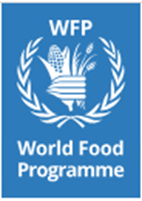
Всемирная Продовольственная Программа ООН
Senior Programme Associate (Home Grown School Feeding Expert)
KEY RESPONSIBILITIES (not all-inclusive, nor exhaustive):
Provide specialized expertise and contribute towards the development of project activities, plans and processes within the specific technical area of work ensuring alignment with wider programme policies and guidelines.
Provide efficient coordination and specialized project management support to a range of specific and/or defined programmes to ensure that the various activities are performed within the established targets following WFP’s policies and procedures.
Within the specific area of responsibility, prepare a variety of elaborated reports and substantial data analysis (e.g. food assistance needs, resource utilization, programme status, performance) and make recommendations to supervisors, ensuring deliverables adhere to corporate standards and quality control.
Lead and ensure accurate, timely recording of data within the specific technical area of work (e.g. assistance programmes, food security and vulnerability assessments) and consistency of information presented to stakeholders.
Coordinate and liaise with internal counterparts on a range of complex matters to enable effective collaboration, implementation and monitoring of ongoing project activities.
Foster relationships and support partnership-building with local partners, agencies, NGOs and government institutions to perform accurate food security analyses and to ensure efficient delivery of food assistance.
Support the capacity building of WFP staff, cooperating partners and national government within a specific technical area.
Act as an escalation point for complex query resolution on all matters within the area of responsibility.
Manage a team of support staff, providing advice, guidance and training, to ensure individual and team objectives are delivered to agreed standards and deadlines.
Follow standard emergency preparedness practices to ensure WFP is able to quickly respond and deploy needed resources to affected areas at the onset of the crisis.
SPECIFIC JOB REQUIREMENTS
Project Planning and Coordination
Lead planning, coordination, and implementation of school WASH activities to enhance access to safe water, sanitation, and hygiene facilities. Conduct WASH needs assessments and prepare improvement plans for water points, toilets, handwashing stations, and waste systems, ensuring designs are gender-sensitive, disability-inclusive, and age-appropriate.
Develop Bills of Quantities (BoQs) and technical specifications for WASH infrastructure and MHM supplies, in coordination with engineers, procurement teams, and local authorities.
Plan and oversee the establishment of school WASH committees and capacity-building initiatives to ensure effective operation and maintenance of WASH facilities.
Capacity Building and Training
Develop and deliver training materials and curricula on hygiene, sanitation, and menstrual hygiene management (MHM) for teachers, students, and community stakeholders.
Conduct training of trainers (ToT) for cooperating partners and organize capacity-building workshops to strengthen the skills of WASH committees and local authorities in managing and maintaining school WASH services.
Monitoring, Evaluation, and Reporting
Establish and apply monitoring tools to track WASH progress and ensure quality implementation through regular field visits and inspections.
Compile data, lessons learned, and best practices, contributing to technical and donor reports to inform evidence-based planning and continuous improvement.
Stakeholder Engagement and Policy Alignment
Coordinate with the Ministries of Education, Health, and water authorities, as well as UN agencies, NGOs, and development partners, to ensure harmonized implementation of school WASH interventions.
Advocate for the integration of school WASH into education, health, and nutrition policies and strengthen local governance mechanisms for sustainability.
Support the localization and application of national WASH and SHN standards in alignment with the Home-Grown School Feeding (HGSF) Programme and WFP strategic objectives
DESIRED EXPERIENCES FOR ENTRY INTO THE ROLE:
- Has participated in implementing technical programs (i.e. nutrition, etc.).
- Has implemented programmes with increased level of responsibility.
- Has provided input to policy discussions.
- Has professional experience in WASH programming, preferably with a focus on schools or child-centered interventions.
- Has proven experience in working with donors, implementing infrastructure (e.g. water points, toilets, handwashing stations), monitoring & evaluation, possibly rehabilitation / construction.
- Has strong technical understanding of WASH infrastructure (water supply, sanitation, hygiene), facility design, BoQs (Bill of Quantities), construction supervision.
- Has knowledge of national WASH policies, health & education sector linkages
- Has skills in hygiene promotion, MHM (menstrual hygiene management), disability inclusion.
- Has experience in organizing training sessions, stakeholder workshops, and field coordination activities.
- Has proven experience in participatory approaches, training delivery, and community engagement.
- Familiarity with national WASH policies, standards, and coordination mechanisms is an asset.
- Experience in school‐based WASH / hygiene / sanitation is an asset.
STANDARD MINIMUM ACADEMIC QUALIFICATIONS:
Experience: Seven years of progressively responsible work experience in development, government aid programme, general administrative work or other related fields.
Education: Completion of secondary school education. A post-secondary certificate in public health, environmental engineering, water and sanitation, education, or a related field is desirable.
Language: Fluency (level C) in both oral and written communication in English and proficiency in the duty station’s language(s). Russian or Kyrgyz, both considered an advantage.

